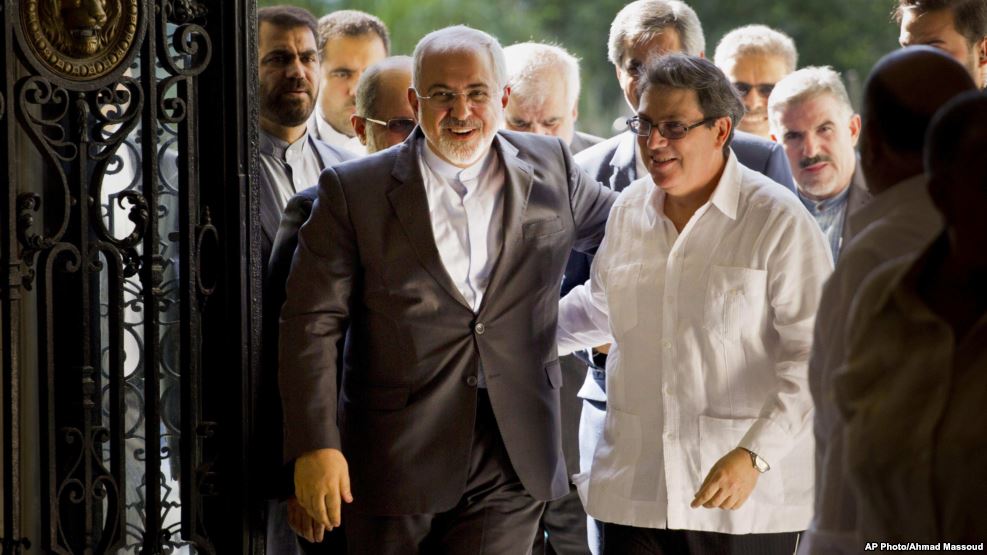Bogota–The visit of Iran’s Foreign Affairs Minister Mohammed Javad Zarif to six Latin American countries raised many questions, as several observers considered it an attempt to boost Iran’s relations with the American continent following numerous failed attempts in the past.
Zarif left Tehran for Cuba on Monday at the first leg of his official visit to Latin America, leading a group of 120 merchants, businessmen and financial executives in government and private sectors.
According to observers, Latin American countries do not enjoy strong economies to represent a strong ally to Iran; however, building close ties with the Persian State could hamper the region’s stability.
Venezuela was one of the closest allies to Iran among other Latin American countries. Venezuela’s foreign affairs minister, Delcy Rodriguez, conducted an official visit to Tehran to arrange Zarif’s tour.
During an interview with Asharq al-Awsat newspaper, Marcos Peckel, advisor at the Colombian foreign affairs ministry and expert in Middle Eastern affairs, said that Iran was trying, in vain, to improve its image following the terrorist attacks in Buenos Aires.
Argentina has accused the Lebanon-based so-called Hezbollah of carrying out a terrorist attack in 1994 on the direction of Iran. At least 85 people were killed in the suicide bombing in which 230 others were injured.
Peckel said that Zarif was trying to mend ties with Latin American countries. He noted that four Latin states – namely Venezuela, Ecuador, Bolivia and Nicaragua – were longtime allies to Tehran, while Zarif’s visit to Chile sparked a wave of negative reactions among local Chilean officials.
The Colombian advisor also noted that commercial exchange between Iran and Latin countries was limited to few areas, adding that several projects announced by Iran in the Latin American continent have not yet seen light.
Asked about Iranian interests in the region, and whether the Persian State was trying to hamper the area’s stability, Peckel said that the country was facing a major problem in Latin America, represented by the necessity to deal with the terrorist attack that rocked Buenos Aires in 1994, which was blamed on Hezbollah and Iran.
The Colombian official also said that Tehran last lost several possible partners within Latin America, including Brazil, whose president Dilma Rousseff has shown no interest in pursuing past relations with Iran.
Peckel went on to say that Iran had duplicitous ambitions. He noted that the country was acting as if it wanted to mend ties with the Latin American continent; but its true intention was to get away with its terrorist operation in Buenos Aires that was perpetrated 23 years ago.
“Iran is facing a major problem in Latin America; this explains its futile efforts to improve its image,” the official said.
He added that many people in Latin countries regard Iran as an ally to Hezbollah terrorist group.
Peckel condemned the Persian State’s blatant interference in Yemen and Syria, and its declared support to the head of the Syrian regime, Bashar al-Assad, who is “committing collective genocide against its own people.”
Asked about the outcome of Zarif’s visit, Peckel said that despite the signing of several commercial agreements, the visit will not be fruitful as Iran’s commercial sector does not attract Latin countries.
